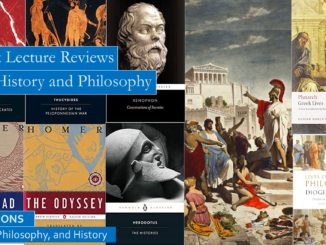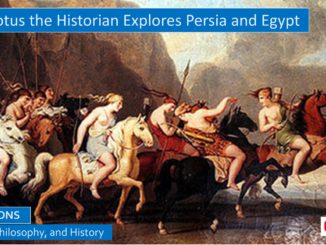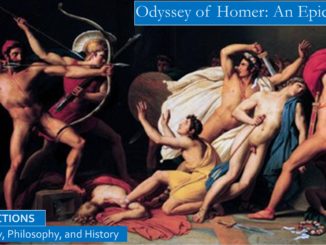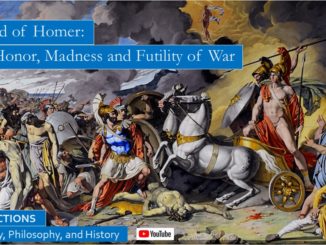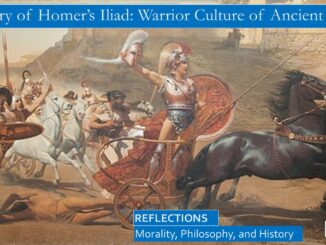
Summary of Homer’s Iliad: Warrior Culture of Ancient Greece
All ancient cultures were warrior cultures, out of necessity. War was a deadly business, if an ancient city-state lost the war the city would be plundered, often the military age men would be slain, and the women and children would be sold into slavery. In ancient Athens, a quarter of the population were slaves, and in ancient Rome about forty percent of the population were slaves. Most of these slaves were either born into slavery or were captured during war, some were captured and sold by pirates. […]

